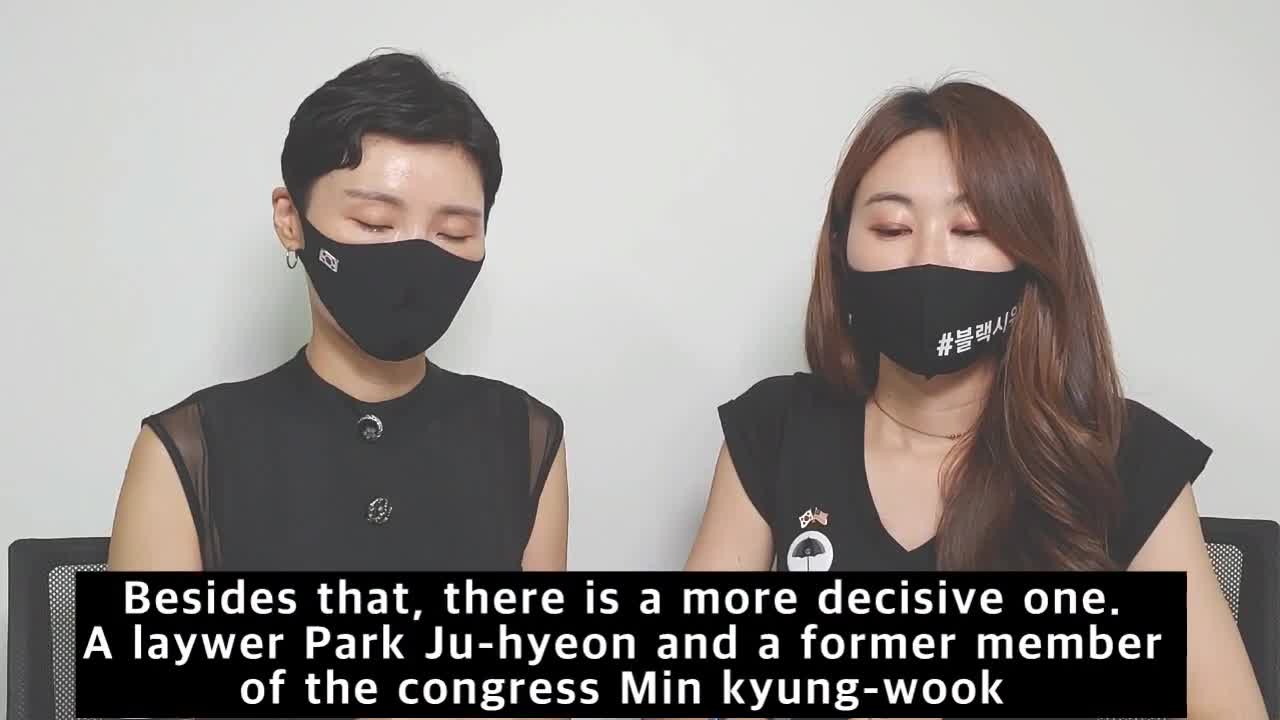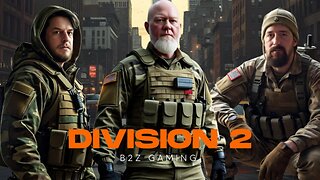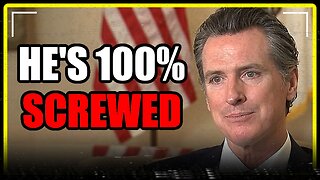Premium Only Content

The 2020 South Korean Legislative Election was RIGGED!
South Korea’s election to select National Assembly members on April 15, 2020
was rigged by President Moon Jae-in’s administration. Or so a diverse group of
South Korean citizens claim.
This is a serious charge. Even more so, if true. Not least for the threat it poses to
South Korea’s democracy and to the entire U.S.-South Korea alliance. But before
dismissing this charge as sour grapes by the losing party and its candidates, it’s
worth considering the evidence, which does raise serious and credible concerns
that the Moon administration working with China ‘fixed’ the election.
First, some context is important.
Despite occasional hiccups, one tends to assume the U.S.-South Korea
relationship is solid. It is nearly 70 years old, was forged in blood during the
Korean War, and is based on shared democratic and free-market values and a
common perception of the North Korean threat. This includes a mutual
commitment to defend against North Korean aggression and nuclear blackmail.
But nation-to-nation relationships – just like people-to-people ones – can change
over time. And while unpleasant for supporters of the U.S.-ROK alliance to contemplate,
could we be seeing a quiet but systematic effort – led by a committed core of
South Korean hardline leftists represented by Moon Jae-in and a coterie of longtime associates to turn the Republic of Korea into a one-party state? A further
objective of this consolidation of power, so the theory goes, is to unify South Korea with North Korea, and to align South Korea (and a unified Korea) with the
People’s Republic of China – with whom there is seen a ‘common destiny.’
Although unstated, since a majority of South Koreans currently oppose the idea –
as well as the idea of unifying with the North – the ultimate aim of Moon and
associates is to delink South Korea from the United States and remove U.S. forces
from the Korean peninsula.
Far-fetched? Maybe not. Especially given what is known about Moon and his
associates' backgrounds and ideological positions. More than just leftists or
‘socialists’, some of Moon’s closest advisors and current South Korean officials
were associated with anti-American, pro-North Korea student groups – and have
never renounced such ideas. Others have been implicated and charged with
spying on North Korea’s behalf.
Moon and South Korea’s leftists have made considerable progress towards
controlling the levers of governance and power in South Korea. This includes
dominating the media, the judiciary, the intelligence service, the National
Election Commission, and even putting the South Korean military on notice with
the arrest of a four-star General three years ago on questionable abuse of power
and corruption charges, for which he was eventually found not-guilty. The Moon
administration has used libel laws, tax audits, and regulatory powers to rein in
free speech and bring the media and other critics to heel.
Academia has mostly been aligned with South Korea’s leftists for many years.
The leftist faction and the Moon administration also use the aggressive, noisy
Korean Confederation of Trade Unions (KCTU) as a political weapon. This
includes intimidating and cowing political rivals, and even some of Korea’s main
private companies – with Samsung currently being in the cross hairs as a
potential obstacle to Moon and the leftists amassing power.
But Moon et al still needed the National Assembly. Until recently, South Korea’s
fractious and nominally conservative opposition, the United Future Party (UFP),
could at least serve as a counterweight to the left and some of its leaders’ more
sinister objectives.
However, the April 15, 2020 South Korean election resulted in an overwhelming
victory (180 out of 300 seats) for the ruling Democratic Party (DP) over the main
opposition UFP. This majority is enough to pass any legislation the DP desires, and peel off just three more votes in the National Assembly and revising the
Constitution is possible.
The overwhelming election victory was a surprise to many, though not all,
observers and has led to claims the vote was rigged.
137 lawsuits have been filed, covering nearly half of all voting districts and
seeking to overturn the election results. 25 losing candidates are among the
litigants. This is far and away more than the number of suits brought following
any previous South Korean election. And usually those suits are just asking for a
recount. These are seeking to overturn the election as being illegally run.
Despite the fraud allegations, surprising – even stunning – election outcomes do
occur – as shown in the famous photograph of a beaming, victorious U.S.
President Harry Truman holding a newspaper with the headline ‘Dewey Beats
Truman.’ Even Donald Trump’s 2016 election victory was a rattling surprise for
many people. With this in mind, this writer was inclined to consider the April
15, 2020 election outcome as just ‘one of those things’ that happens in a
democracy.
So this writer’s inquiries began with a degree of skepticism mixed with curiosity
to see if there was a case to be made for the election fraud claims – beyond the
outcome simply being so surprising that some people assumed there must have
been fraud.
Before long, however, one sensed that these were not just sore losers venting
frustration. Rather, they came across as level-headed – and included individuals
who are eminent in their professions and experts in the specific areas where they
allege electoral fraud. It’s a mix of professors, lawyers, statisticians, computer
programmers, data analysts, software and semiconductor engineers, politicians,
journalists, and ‘regular’ citizens – including a former leftist who spent time on
the run from South Korea’s military regime. Even a large number of academics
(not exactly known as conservative by nature) have joined in. Collecting evidence to make the case for ‘election rigging’ is obviously a
challenge – no matter what country it is, not least since election rigging is
intended to be hidden. In South Korea, gathering information is no easier given
the DP’s heavy hand over government, bureaucracy, the media, and other
instruments of power. And there is also the simple reluctance of people to
5
believe systematic election fraud can happen in a first-world democracy such as
South Korea.
-
 12:08
12:08
The Illusion of Consensus
13 days agoRav Arora vs Mark Cuban DEBATE On Whether Joe Rogan Was Right On Covid Vaccines For Young People
91210 -
 17:12
17:12
Paul Barron Network
13 hours ago$SBET🚨Ethereum Epic Short Squeeze Incoming!?🔥
5.97K -
 LIVE
LIVE
Lofi Girl
2 years agoSynthwave Radio 🌌 - beats to chill/game to
1,748 watching -
 2:05:44
2:05:44
Side Scrollers Podcast
18 hours agoCalifornia is LOST, YouTube LOOSENS Rules, YouTuber SHOT Over Beef + More | Side Scrollers Live
23.3K28 -
 LIVE
LIVE
B2ZGaming
3 hours agoDivision 2 | B2Z Gaming
442 watching -
 11:11
11:11
MattMorseTV
14 hours ago $1.73 earnedNewsom's FUNDING just got EXPOSED.
30.7K71 -
 8:07
8:07
Dr. Nick Zyrowski
6 days agoHigh Dose Vitamin D Increases Fat Loss & Muscle Growth - New Study
9.15K5 -
 LIVE
LIVE
sKoRpSteR
7 hours ago🔴LIVE RUMBLE GAMING - quick stuff
14 watching -
 4:13:41
4:13:41
The Pascal Show
18 hours ago $0.12 earnedDIDDY TRIAL LIVE! Jane Doe 'Victim #2' Defense CROSS! Diddy Trial Day 20
5.83K -
 LIVE
LIVE
tacetmort3m
2 hours ago🔴LIVE - VETERAN PLAYER SHOWING HOW ITS DONE - WARHAMMER 40K DARKTIDE
18 watching